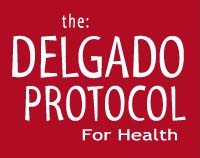
Although most people don’t give too much thought to their thyroids, this butterfly shaped gland that sits at the base of your neck plays an essential role in your health. It releases hormones that affect virtually every organ in your body. It also regulates numerous bodily functions, including your metabolism, heart rate, breathing, nervous system, and skeletal system.
An overburden of toxins and a diet that is deficient in essential nutrients for thyroid health has lead to an epidemic of thyroid disease in America. And the scariest part is that most people suffer from thyroid disease symptoms and are completely unaware that a malfunctioning thyroid is a cause. Fortunately, you can reduce your risk for thyroid disease by ensuring you have enough of the following 3 nutrients in your diet.
L-Tyrosine:
L-tyrosine is an amino acid that acts as a building block for protein and plays an essential role in the production of depression-fighting neurotransmitters (epinephrine, norepinephrine, and dopamine). It is also essential for thyroid health, and your body requires l-tyrosine in combination with iodine, to produce the thyroid hormones—T3 and T4. Your body can produce l-tyrosine on its own, but it requires an adequate intake of dietary phenylalanine in order to do so. A deficiency of dietary phenylalanine and chronic stress can both cause low tyrosine levels and lead to hypothyroidism.
Hypothyroidism is a common disorder where the thyroid is underactive and does not make enough thyroid hormones. This thyroid disease causes the metabolism to slow down, and increases the risk for heart disease, cognitive impairment, arthritis, and macular degeneration. It also causes many troublesome symptoms including stubborn weight gain, fatigue, cold hands and feet, constipation, an inability to focus, and dry skin. Boosting low tyrosine levels can help hypothyroid sufferers by aiding in the production of T3 and T4. In order to boost tyrosine, consume phenylalanine-rich foods such as fish, peanuts, almonds, avocadoes, bananas, lima beans, pumpkin seeds, and sesame seeds. For a more pronounced effect, consider taking an l-tyrosine supplement.
Iodine:
Iodine is a trace mineral that is primarily found in the thyroid, and required for the production of thyroid hormones. When iodine is deficient the thyroid becomes unable to make sufficient amounts of thyroid hormones, which adversely affects the heart, muscles, brain, kidneys, and liver. An iodine deficiency leads to hypothyroidism and can cause a noticeably swollen and enlarged thyroid gland (goiter).
Ironically, an iodine deficiency may also lead to an overactive thyroid (hyperthyroidism), and high doses of iodine may help to reduce overproduction of thyroid hormones in Grave’s disease sufferers.
Iodine deficiency is currently one of the biggest worldwide public health issues. It is caused by an inadequate intake of iodine, due to depleted iodine levels in the soil, and/or a diet that lacks iodine. You can find out if you have an iodine deficiency by purchasing a bottle of liquid iodine from your pharmacy.
Apply a few drops of the iodine on your wrist, and a dark residue should appear and remain there for 24 hours. If your iodine levels are low, the residue will fade to a light color before the 24 hours is up.
If you are iodine deficient, you should increase your intake of iodine-rich foods. Sea vegetables such as miso, seaweed, kelp, wakame, arame, nori, and kombu are the richest natural sources; but iodine is also found in seafood, eggs, lima and navy beans, garlic, spinach, turnips, deep leafy greens, and summer squash. Consuming the above foods regularly can help prevent an iodine deficiency, but in order to reverse one, you may need to take higher doses in supplement form for at least a few months. A delicate balance of iodine is required for optimum thyroid function, so make sure to monitor your iodine levels while taking iodine supplements by retesting yourself regularly.
*RAD Iodine (insert hyperlink http://www.delgadoprotocol.com/rad-iodine/) is a thyroid-supporting supplement that contains clinically effective doses of highly absorbable organic iodine as well as l-tyrosine.
Antioxidants:
Oxidative stress is a condition that exists when there are more free radicals (which damage and destroy cells and DNA), than there are antioxidants (which scavenge and neutralize free radicals). Studies show that both hypothyroidism and hyperthyroidism are associated with a state of oxidative stress, and it is thereby important to consume plenty of antioxidants in order to prevent this state. To ensure an adequate intake of antioxidants, consume a wholefoods based diet, high in raw, brightly colored fruits and vegetables, and make your diet as varied as possible. For added antioxidant support consider taking a mixed antioxidant supplement.
When choosing a supplement, it’s important to realize that different types of antioxidants perform different functions for thyroid health. For examples, Coenzyme Q10 is important for an overactive thyroid, and hyperthyroid sufferers tend to be highly deficient in it. Selenium is critical for regulating thyroid hormone levels, and it can help to prevent and treat both hypothyroidism and hyperthyroidism. The importance of selenium should not be underestimated – researchers have found that a low selenium intake increases the risk for thyroid disease by a whopping 69.
Finally, vitamin D plays an important role as an immune modulator and it significantly reduces the risk for autoimmune disease. This action makes it therapeutically beneficial for Grave’s disease (the number one cause of hyperthyroidism), and Hashimoto’s Thyroiditis (the most common cause of hypothyroidism). Vitamin D has also been found to help reduce the symptoms and severity of all types of hypothyroidism. To ensure adequate vitamin D levels, take a supplement and/or expose your skin to the sun for at least 15 minutes every day.
[ytp_video source=”9GtBPfbb5TA”]
Would you like to join me?
See our online courses to be guided to your success: Live to be healthier, happier, and more successful for you and your family.



